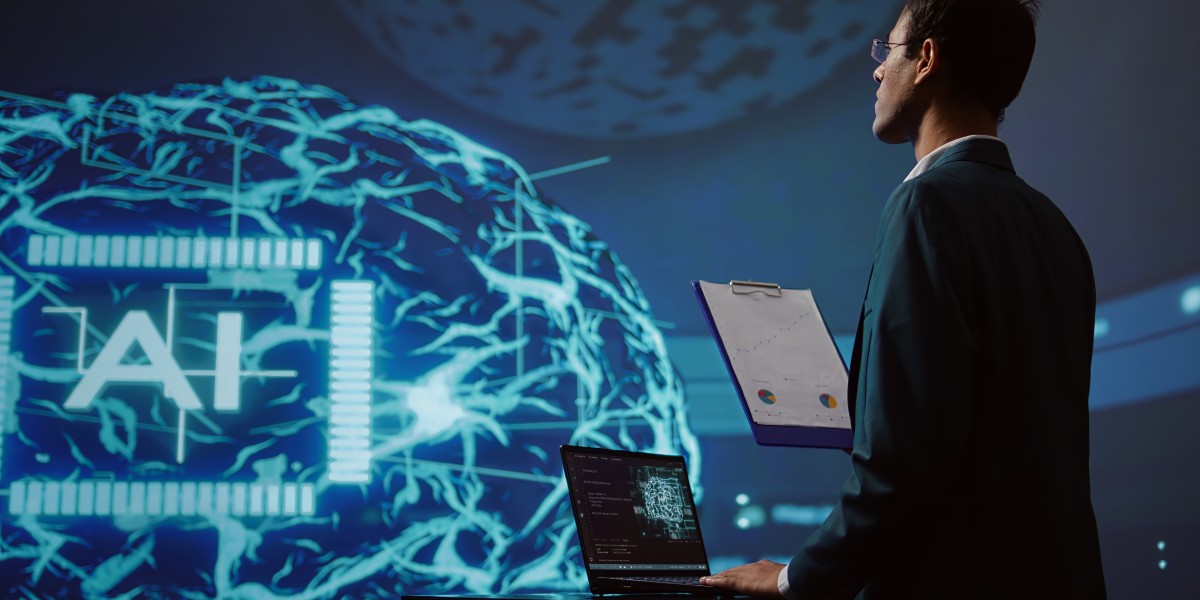The Software-as-a-Service (SaaS) industry is evolving faster than ever. Once characterized by streamlined tools and subscription models, SaaS has now reached a stage where innovation is not optional—it’s survival. User expectations are rising, competition is intensifying, and data is growing exponentially. In this rapidly shifting landscape, one factor is setting leading SaaS companies apart: intelligence. Specifically, intelligence powered by a skilled artificial intelligence developer.
By 2025, AI will no longer be a luxury add-on for SaaS businesses; it will be the bedrock of their operations. From customer support automation to hyper-personalized onboarding experiences, AI is transforming every facet of SaaS. But adopting AI isn't as simple as integrating an API—it requires custom development, data strategy, and continuous optimization. This is exactly where an artificial intelligence developer becomes indispensable.
The Shifting Dynamics of SaaS in 2025
SaaS has become a crowded and hyper-competitive space. More companies are entering the market with similar functionalities, freemium models, and even open-source alternatives. What differentiates SaaS companies now isn’t just features—it’s how smart those features are.
Key Market Shifts Driving AI Adoption:
Customer retention is harder than ever—users have more choices and switch faster.
Data volumes have exploded, creating opportunities for smarter automation.
Self-service is in demand, and users expect solutions without support tickets.
AI-native competitors are redefining what "standard" features should look like.
To compete in this environment, your SaaS offering must be intelligent by design—and that requires a developer who understands both AI and your product’s vision.
What an AI Developer Brings to Your SaaS Product
An artificial intelligence developer is not just a coder—they are a strategist, data scientist, and system architect. They play a mission-critical role in future-proofing your SaaS offering.
1. Personalized User Experiences
AI developers design recommendation engines, intelligent onboarding flows, and dynamic dashboards tailored to each user’s behavior and preferences.
Example: A project management SaaS uses AI to suggest deadlines, assign resources, and prioritize tasks based on team performance history.
2. Predictive Analytics
They integrate machine learning models that predict churn, identify upsell opportunities, and forecast user behavior—all embedded directly into the app’s dashboard.
Example: A CRM platform forecasts which leads are most likely to convert based on prior sales data, helping teams focus their efforts effectively.
3. AI-Powered Customer Support
Developers build and train chatbots that understand queries, solve problems, and escalate only complex issues to human agents—reducing support costs dramatically.
4. Workflow Automation
AI developers integrate intelligent triggers—like auto-tagging tickets, reassigning tasks based on availability, or sending predictive notifications.
Core AI Features in SaaS Platforms (2025 and Beyond)
Let’s explore some AI functionalities that are fast becoming essential in SaaS:
✅ Intelligent Search
AI developers implement semantic search, which understands user intent—not just keywords—making navigation faster and more intuitive.
✅ User Behavior Scoring
Developers create scoring systems based on in-app behavior to drive product-led growth strategies, improve engagement, or trigger retention emails.
✅ Fraud Detection
For fintech and transactional SaaS platforms, AI is vital for spotting anomalies in real-time—like bot activity or suspicious payment behavior.
✅ Sentiment Analysis
In platforms with reviews, tickets, or community feedback, AI developers train models to detect user sentiment, flag negative trends, and inform product decisions.
Why Off-the-Shelf AI Isn’t Enough for SaaS
Plug-and-play AI tools might seem tempting, but they rarely deliver the kind of insight and performance that SaaS companies need. Only a custom-trained model—built and optimized by a dedicated artificial intelligence developer—can:
Adapt to your specific business logic and data.
Scale reliably with your growing user base.
Maintain data privacy and compliance (e.g., GDPR, HIPAA).
Evolve through continuous learning and feedback loops.
Hiring an AI developer ensures that your SaaS product isn’t just using AI, but is powered by it at the core.
Case Study: AI-Enhanced Onboarding in a HR SaaS Platform
A mid-sized SaaS company offering HR software wanted to reduce churn caused by onboarding fatigue. Their newly hired artificial intelligence developer built:
A smart, conversational onboarding assistant.
Behavior-based email triggers based on module completion.
Personalized training module recommendations.
The results? A 40% drop in first-month churn and a 25% rise in long-term user engagement.
How an AI Developer Integrates Into Your SaaS Workflow
Here’s a typical roadmap of what an AI developer does when embedded in a SaaS product team:
Step 1: Identify Strategic Opportunities
The developer collaborates with product managers and marketers to identify high-impact use cases—such as reducing churn or increasing conversion rates.
Step 2: Gather and Clean Data
They collect relevant datasets—user behavior logs, customer support transcripts, feature usage patterns—and clean them for training.
Step 3: Build the Model
Using libraries like TensorFlow, PyTorch, or Scikit-learn, the developer builds models tailored to your exact use case.
Step 4: Deploy and Test
The model is integrated into the product’s architecture using microservices or APIs. Performance is tested under real-world loads.
Step 5: Continuous Optimization
The model is updated regularly with new data, user feedback, and business priorities. AI developers ensure it evolves with your product.
Essential Tools AI Developers Use in SaaS
To keep SaaS platforms secure, responsive, and scalable, developers typically work with:
Cloud Platforms: AWS SageMaker, Azure ML Studio, Google Vertex AI
ML Libraries: TensorFlow, PyTorch, Keras, Scikit-learn
Data Pipelines: Apache Airflow, Kafka, Snowflake
NLP Toolkits: spaCy, Hugging Face Transformers
Monitoring: Prometheus, Grafana, ELK Stack
Their deep understanding of both AI and DevOps ensures your AI features are reliable and production-ready.
Benefits of Hiring an AI Developer In-House (vs Outsourcing Everything)
While outsourcing AI development is feasible, having a dedicated developer brings long-term strategic advantages:
Better product alignment with your unique business goals.
Faster iteration cycles, especially when rolling out AI-driven features.
Data privacy control as data doesn’t leave your environment.
Higher personalization since models are trained on your proprietary data.
If you're looking to build a truly intelligent SaaS platform, an in-house artificial intelligence developer is your competitive advantage.
Future-Proofing Your SaaS with AI
SaaS businesses that adopt AI today are not just improving their product—they're setting the stage for long-term dominance. Here's what to expect in the next wave:
1. Autonomous SaaS Platforms
AI agents that can take actions autonomously, like adjusting subscription plans based on usage or auto-generating analytics reports.
2. AI-Driven UX
Interfaces that learn how each user prefers to interact—changing layout, feature prominence, or help content accordingly.
3. Predictive Product Roadmaps
AI analyzing user behavior and feedback to recommend features before users even request them.
4. Intelligent Pricing Models
Dynamic, AI-calibrated pricing that adjusts based on demand, user behavior, and competitor activity.
Conclusion
The SaaS landscape in 2025 demands more than just functionality—it demands foresight, intelligence, and adaptability. Businesses that continue offering static, rule-based platforms will be outpaced by AI-native competitors.
Hiring an artificial intelligence developer is no longer a forward-thinking luxury—it’s a core strategic move. From intelligent support systems to predictive analytics and adaptive workflows, the innovations they bring will not only enhance your product but also redefine how your customers engage with it.
Don’t just add AI to your SaaS. Build your SaaS around it—with the right talent leading the way.







